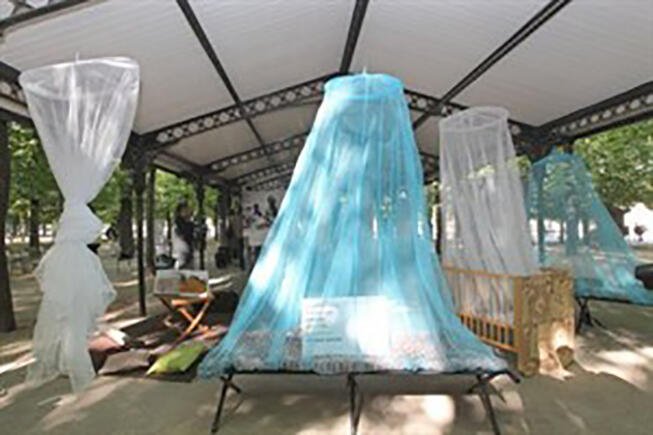
LSTM’s Seminar Series continued this week with a talk from Professor Sasithon Pukritayakamee and Associate Professor Janarit Kaewkungwal from Mahidol University, Thailand. They were introduced by LSTM’s Director, Professor Janet Hemingway and delivered a presentation entitled: “Malaria Research at the Faculty of Tropical Medicine, Mahidol University.” The seminar formed part of a visit by senior staff from the university, which LSTM has had strong links with for over 50 years.
Professor Pukritayakamee is the Deputy Dean of Education at the Faculty of Tropical Medicine, which is designated as a WHO Collaborating Centre for Clinical Management of Malaria and WHO Collaborating Centre for Environmental Management and Disease Vector Control in Sustainable Development. She began her part of the talk by looking at the growing problem of resistance to antimalarial drugs, looking at the history of resistance through the years to different classes of drugs up until the present with resistance beginning in some areas to Artemisinin, which she described as a most important antimalarial drug. She looked at some of the factors that could lead to resistance and how they could be combatted in the region.
During her talk Professor Pukritayakamee touched on three areas: the containment of antimalarial drug resistance, so that it does not spread from the affected areas of Asia to those not affected, or to Africa. This has been done using a combination of examining patient behaviour and the quality and availability of drugs; methods to block the transmission of malaria, including using the drug Primaquine in combination with other drugs; finally she looked at the development of new antimalarial drugs and talked through a number of drugs that are currently being researched within the Faculty of Tropical Medicine.
The second part of talk was delivered by Associated Professor Janarit Kaewkungwal, who is the Director of the Centre of Excellence for Biomedical and Public Health Informatics or BIOPHICS, which is located in within the Faculty of Tropical Medicine and provides a wide range of development, management, and consulting services to the pharmaceutical industry, biotechnology, academic institutes, and public health organisations.
Dr Kaewkungwal’s talk centred around the difficulty of effectively mapping malaria cases in Thailand, traditional difficult when all the records were paper based, but even with electronic records figures still come from two different sources, hospital admission numbers and numbers collected at community based clinics. He explained that neither of these two figures was wholly accurate, but that the tow could not simply be combined as it has been shown that a number of cases will be recorded in both figures as patients may move from treatment centre to hospital and between different hospitals.
He went on to explain how technology is being used to combine the lists and come up with a more accurate number for those people infected and seeking treatment. He talked about the importance of mobile technology in accurately recording patient details, prompting healthcare workers about return and home visits as well as recording if the patient was infected with vivax or falciparum malaria.
Both Professor Pukritayakamee and Dr Kaewkungwal took questions from the audience and were thanked by Professor Hemingway.